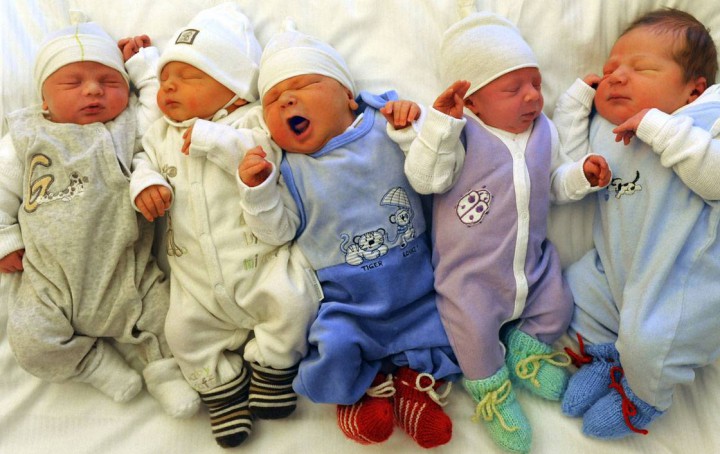TORONTO – For women, smelling a newborn baby feels as good as drugs are to addicts or cheeseburgers to those just breaking a fast, new Montreal research suggests.

A University of Montreal scientist says a newborn baby’s odour lights up the reward centres in our brain in a way other scents can’t. And for women – specifically moms – the experience, a rush of dopamine to the brain, is heightened.
The reaction is so strong, it exists even if the baby isn’t in front of you. It’s chemistry between mom and baby.
“What we’ve shown for the first time is the odour of newborns – which is part of these signals – activates the neurological reward circuit in mothers. These circuits may especially be activated when you eat while being very hungry, but also in a craving addict receiving his drug. It is in fact the sating of desire,” lead researcher Dr. Johannes Frasnelli said.
Read more: Toronto hospital launching landmark study following pregnant women and their babies
Frasnelli is a professor of psychology in Montreal. He recently collaborated with colleagues in Sweden and Germany in a project looking at how odour affects our brains. Do we react to the scent of a stranger the same way we respond to the scents of our family members or friends?
In this case, the scent of newborn babies was put to the test. Their pajamas they had lived in for about a day or two were frozen to capture the odour. Then, 30 women – half of which were moms and half weren’t – were put to the test.
Under an fMRI scanner, they were given shots of air, newborn baby scent and a third scent. They were then asked to describe the scents – in the case of the baby odour, it was typically described as “slightly pleasant” – while researchers studied their brain reaction.
But the brain scans revealed that the limbic system of the women’s brains had lit up. And for new moms, the reward centre responded so strongly there was a marked statistical difference compared to the group of women who hadn’t had their maternal instincts kick in yet.
Read more: Dad’s controversial advice for daughter’s sex life mirrors parenting in Canada, experts say
Frasnelli said that if a baby scent can tap into our reward centres so strongly, it could explain why parenthood makes new moms and dads so happy. Even without the baby in front of them, the subjects’ brains were flooded with feel-good endorphins.
“You have this new person, this little thing in your home that’s crying all the time but it’s such a beautiful thing, every parent will tell you. And why is that? It’s partly because of these activations here,” Frasnelli told Global News.
“You want to be close to the baby, it gives you so much reward. Some people describe a baby’s odour like chicken soup.”
Dopamine is also linked to sexual pleasure and other forms of gratification. Lab rats that can tamper with their dopamine levels using electrodes can become so addicted to the chemical, they’ll forgo eating to keep pumping it through their systems.
Read more: Could personality in childhood predict how teens will respond to drinking?
Men were not included in the study, so Frasnelli is unsure if this is an innate human reaction or an experience exclusive to women.
He’s also unsure if the heightened reaction from moms stems from a learned reaction after spending time with their babies or if it’s a natural chemistry between women and babies.
Frasnelli’s full findings were published in the journal Frontiers in Psychology. Read the full study here.
carmen.chai@globalnews.ca
Follow @Carmen_Chai


Comments